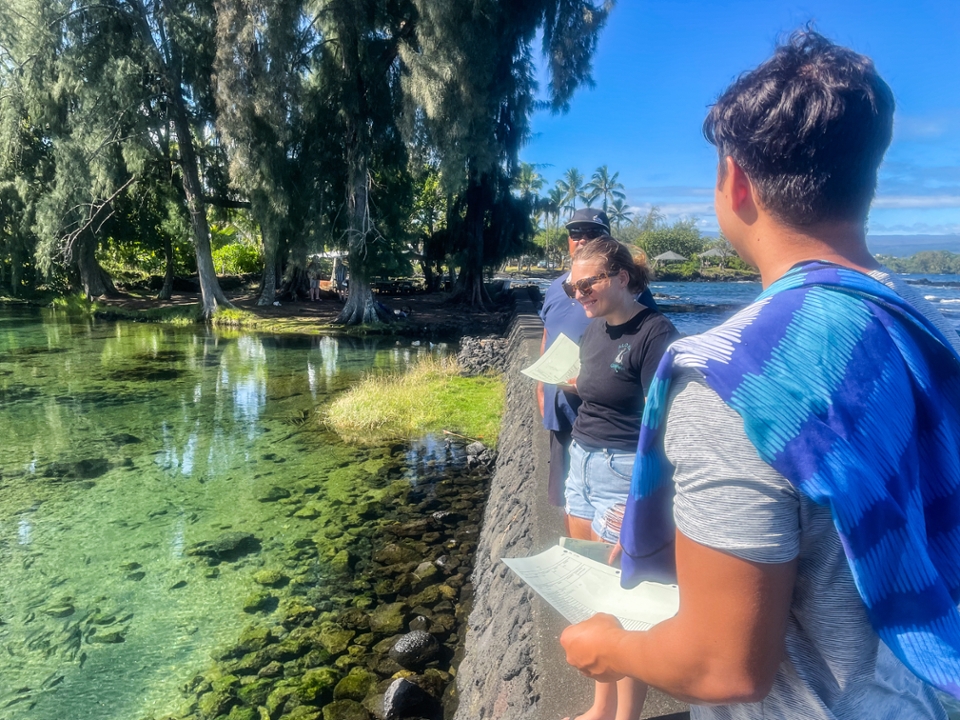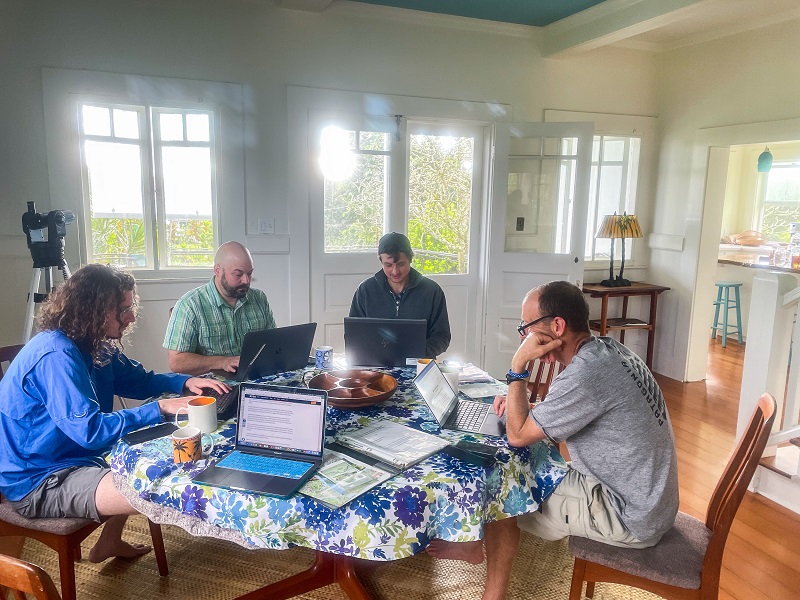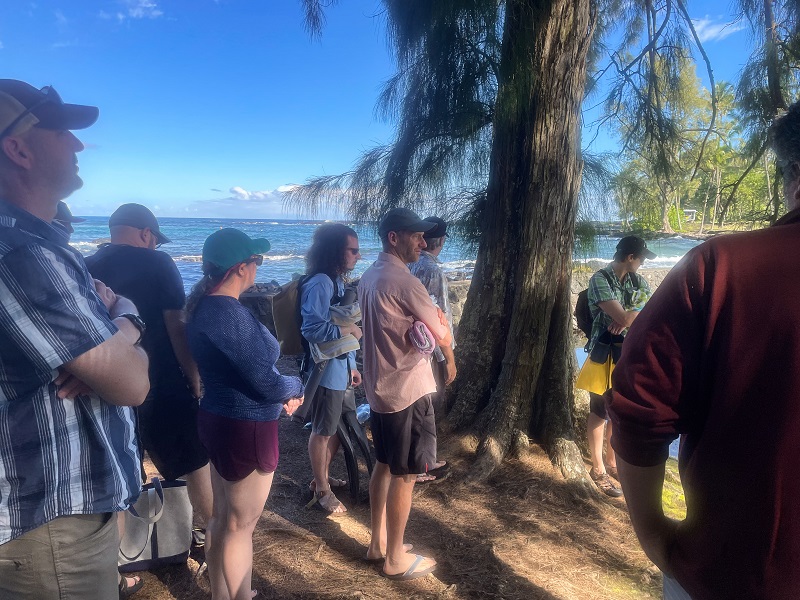Research across the Pacific: ACRC in Hawai`i

This month, ACRC researchers traveled to Hilo, Hawai`i, to participate in a workshop for thePacific Islands-Alaska (PI-AK) collaboration, a unique joint effort by the Alaska and Pacific Islands Climate Adaptation Science Centers (CASCs) exploring the effects of climate change on two distinct, but comparable, watershed ecosystems. Following a visit from PI-CASC researchers to Juneau in July 2022, Alaska scientists made their way south to observe stream research in Hawai`ian watersheds and compare methodologies for the cross-regional project.
One of the participants, ACRC graduate student Claire Delbecq, studies how carbon and nutrients move from streams out to the ocean as part of a greater effort to understand salmon growth rates in changing hydrologic conditions. Read below to hear about her experiences during the trip.
Day 1: Watershed tour 
We ventured to the headwaters of the Wailuku River and made several stops as we traveled down to the estuary. Cheyenne Perry, Mauna Kea Watershed Alliance Coordinator shared a wealth of knowledge on the ecology of the watershed and the Native Hawai`ian history, perspective, and current relationship to the watershed and region. It was really striking to see how many different ecosystems are present over what seems like a short distance. It was interesting to learn about the different challenges watershed managers are facing in their management, for example, working with invasive species as well as land use demands. We also got some perspective on food security in Hawai`i and how people are trying to cultivate food more locally rather than relying on food shipments from the mainland, which felt similar to conversations in Juneau.
Day 2: Estuary tour
We learned a lot about human impacts (groundwater and surface water pollution, as well as the impacts of the breakwater on Hilo Bay) on the nearshore environment near Hilo. We got to see some of the fish ponds that researchers and communities are monitoring and learn about how they do surveys of those ponds. It was also fun to get in the water for a quick snorkel. In the afternoon we started talking more about the research collaboration. PI-CASC fellow Walter Boger and I had a really good talk that helped both of us generate ideas for what we might do with our data and analysis.

Day 3: Wrap up
On our last day, we continued chatting about the future of the PI-AK collaboration and areas of potential work. The two regions share similarities such as steep watersheds with dramatic environmental gradients and both face significant alterations to watershed ecosystems and environmental processes due to climate change. Working together to better understand the impacts to terrestrial, freshwater, and nearshore marine ecosystems can help inform adaptation and natural resource management in Alaska and Pacific Islands watersheds.
The PI-AK collaboration meeting in Hilo brought together researchers from the Pacific Islands CACS including Tracy Wiegner, Steven Colbert, Tim Grabowski, Mari-Vaughn Johnson, Sharon Ziegler-Chong, and Walter Boger, and the Alaska CASC including Steve Grey, Jeff Falke, Kevin Fitzgerald, Jason Fellman, Ryan Bellmore, and Claire Delbecq. Learn more on the Pacific Islands-Alaska CASC collaboration website.